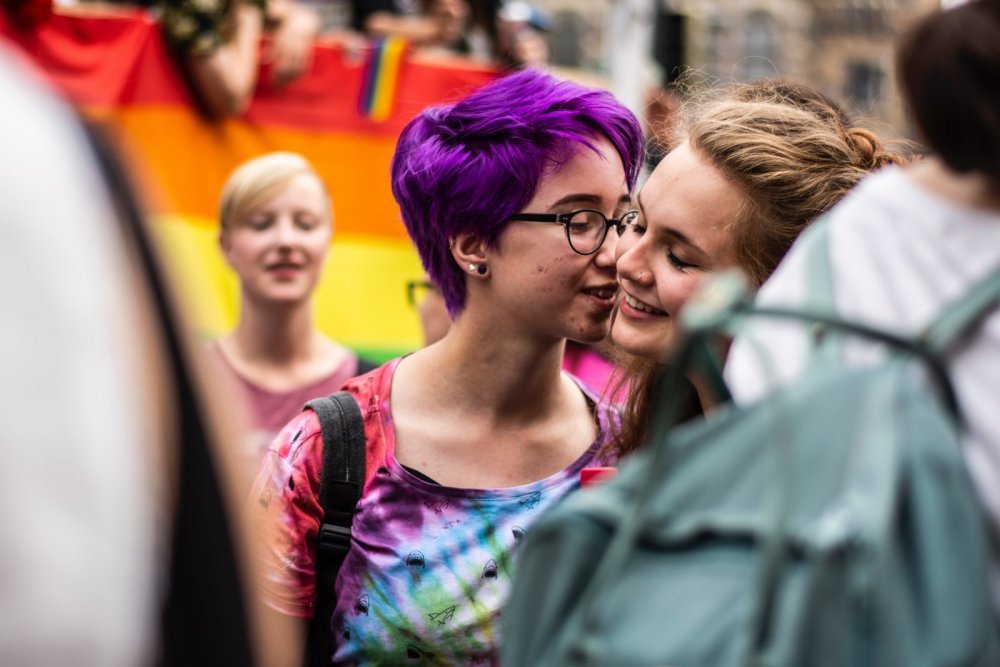Finding happiness when you're a member of the LGBTQ community can be hampered by prejudice and homophobia. Roney, community manager at gays.com, shares his thoughts on how to be queer and happy.
In the end we all have one thing in common: we are all searching for well-being and happiness. If you identify as LGBTQ, you’re no different. You want to feel comfortable. You want to live your life without worries and ideally share it with someone you love. Whether male or female, single or married, heterosexual or homosexual, we all strive for a fulfilled life.
Coming out: hello feel-good life!
Once you realise that you’re not heterosexual, one question might pop up: ‘What now?!’. You have to find yourself, find your position in society and – importantly – you have to stand up for yourself. And that often involves coming out.
Young LGBTQ people know that this is not always easy, and they know this already long before their coming out. They experience how it feels when exclusion, hostility and discrimination is commonplace in their daily life. Whether in school or inside their own family, acceptance towards LGBTQ people is often less than satisfactory.
 Acceptance – not prejudice – is what LGBTQ people need
Acceptance – not prejudice – is what LGBTQ people need
Everyday homophobia
When we're talking about the discrimination of queer people, we quickly stumble across the word homophobia. Even though this term is frequently used, it is, in fact, incorrect. People aren‘t scared of homosexuals (phobia), they are lacking acceptance. They cannot or won’t tolerant same-gender relationships, either because of their own lack of knowledge, religious beliefs, social environment or attitude. These beliefs often also extend to transgender people.
My queer life: that’s me
You are who you are. It doesn’t matter if you’re lesbian, gay, bisexual, trans*, inter* or queer. You are here and you belong to our society. You are part of your community – our society – and for that you can be really proud.
And yet many young queer people have a hard time feeling proud. Suicide rates of young people between the ages of 12 and 25 are four to eight times higher that of young heterosexuals. Young gay men are especially suffering with missing support in their families and are often scared about the reactions of family and friends.
RELATED: 8 powerful suicide prevention quotes
A 2018 study from WHO found that one third of the participating 13,000 young people from eight different European countries already had or still have suicidal thoughts. What did they all have in common? Their homosexuality.
“It doesn't matter if you're lesbian, gay, bisexual, trans*, inter* or queer. You are here and you belong to our society.”
Likewise, teenagers that have gathered same-sexual experiences throughout their adolescence, and would not specifically call themselves homo-, bi, - or pansexual, also struggle with suicidal thoughts and depression.
Discrimination, stigmatization and rejection – these experiences have an impact on one’s development and impact greatly on personal happiness. Prejudices and pressure from society often fuel anxiety in LGBTQ people.
 Accepting your sexuality can lead to a fulfillment and happiness
Accepting your sexuality can lead to a fulfillment and happiness
Our advice? Be happy
You don’t have to hide yourself, you have to be yourself. Only then can you feel truly comfortable and happy. Only when you start to feel comfortable with yourself, will your emotional level change and you will be able to feel happiness inside.
Likewise, you might not always be satisfied with yourself, but you can be (mostly) happy. You can accomplish what you reach out for, you can have friends that stick by you, and you can look ahead instead of looking back. The goal is not always to reach higher, further, and quicker, but to stay with both feet on the ground and worship the things you have already in your hands. You are happy.
Written by Guest author
This article was written by Roney, Community Manager of gays.de and gays.com. Besides his contact inside the community, Roney is engaged with CSD Deutschland e.V. and is campaigning for the acceptance of LGBTIQ* in Germany.

Join the conversation
You are posting as a guest. If you have an account, sign in now to post with your account.
There are no comments to display.